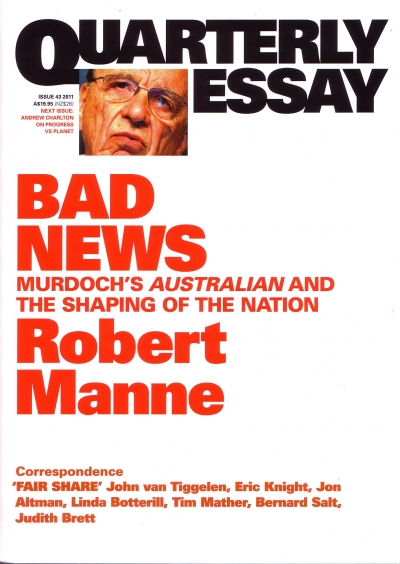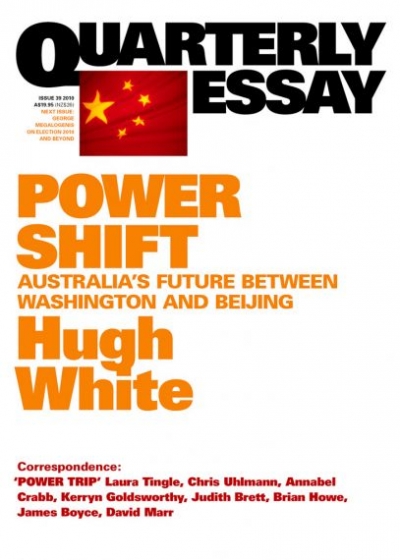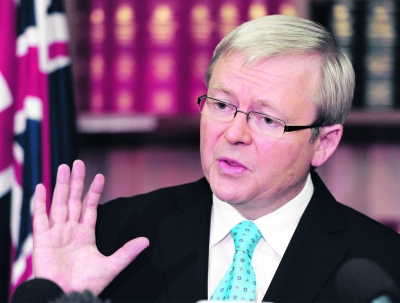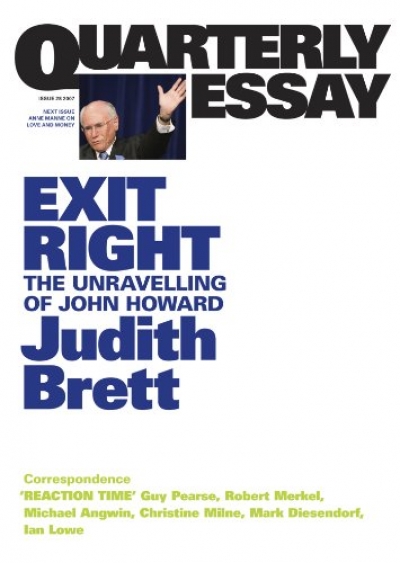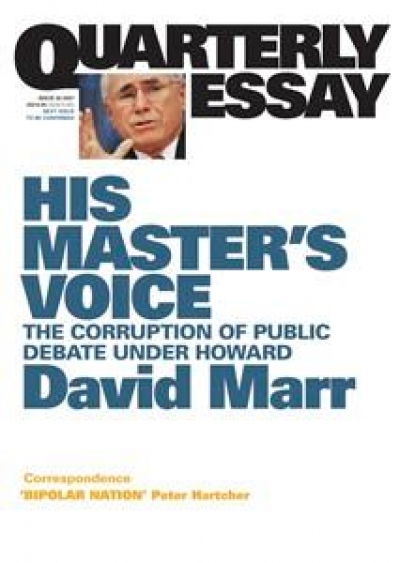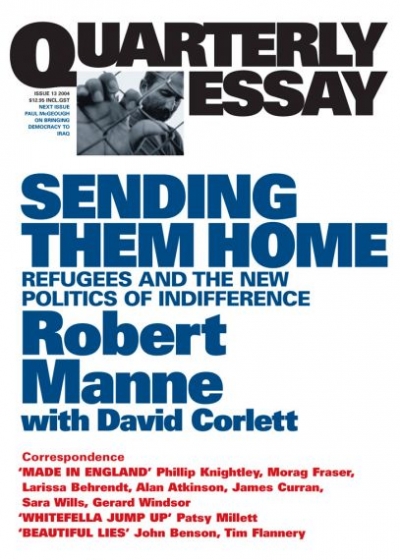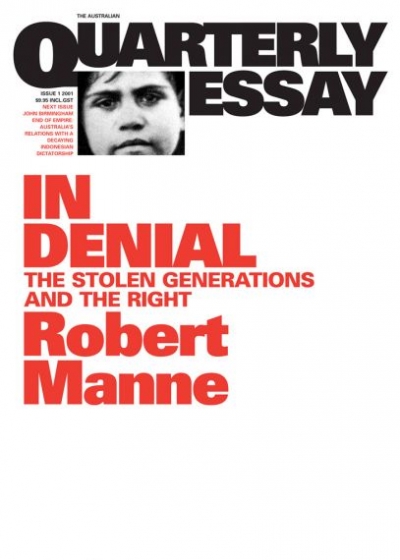Quarterly Essay
Bad News: Murdoch’s Australian and the Shaping of the Nation (Quarterly Essay 43) by Robert Manne
by Robert Phiddian •
Power Shift: Australia’s Future between Washington and Beijing (Quarterly Essay 39) by Hugh White
by Alison Broinowski •
The political assassination of Kevin Rudd will fascinate for a long time to come. As with Duncan’s murder in Shakespeare’s play it was done, as Lady Macbeth cautioned, under ‘the blanket of the dark’, literally the night of 23–24 June 2010. The assassins heeded Macbeth’s advice: ‘if it were done when ’tis done, then ’twere well it were done quickly.’ And as in Macbeth, the assassins were in the shadow of the throne. Even the old king approved: Bob Hawke, himself deposed in 1991, recognised at last that the removal of a Labor prime minister is sometimes necessary.
... (read more)Exit Right by Judith Brett & Poll Dancing by Mungo MacCallum
by Patrick Allington •
His Master’s Voice: The corruption of public debate under Howard (Quarterly Essay 26) by David Marr
by Patrick Allington •
Sending Them Home: Refugees and the new politics of indifference (Quarterly Essay 13) by Robert Manne (with David Corlett)
by Nathan Hollier •

